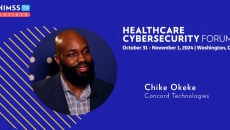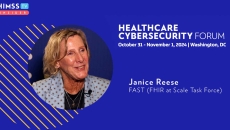Privacy & Security
It was another record-breaking year for healthcare cyberattacks, and healthcare providers' network servers were again prime targets for hackers.
Cybersecurity In Focus
The agency seeks to make its first HIPAA Security Rule update since 2013 to clarify what health plans, healthcare clearinghouses, providers and their business associates must do to protect the security of electronic protected health information.
Chike Okeke, chief information security officer of data exchange company Concord, offers his perspective on the safe and secure transfer of protected health information.
"The usage of AI and automatic vulnerability scanning performed by the attackers allows them to find an exposed IoT device and conduct an attack on it much quicker than they used to be able to," says one security researcher in a new report.
A cyberattack on May 8 against healthcare giant Ascension resulted in the medical data of 5.
SPONSORED
A large children’s hospital is seeing significant cost and time savings after implementing RFID to track high-value medications.
Janice Reese, program manager of FAST (FHIR at Scale Task Force), says making patient access simpler is a key benefit, along with identity consent and security.
The Healthcare Cybersecurity Improvement Act, introduced by Rep. Robin Kelly, offers statutory protections for HC3 and funds a grant program to help small and medium-sized hospitals bolster their defenses, among other provisions.
Dr. Eric Liederman, CEO of CybersolutionsMD, joined MobiHealthNews to discuss why healthcare organizations should assess their vulnerability and prepare for ransomware attacks.
The shutdown disrupted critical healthcare services across the state and exposed Nebraskans' PHI, the lawsuit alleges.










